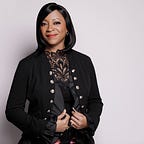I Refuse to Label My “Crazy”: The Cost of Being Brown and Poor
Brown people and poor people don’t diagnose problems. We just don’t. Many of us weren’t taught to see personality and behavior problems as clinical issues that deserved a formal label and a prescription drug regimen. Mood and personality disorders are “rich people problems”, and since poverty is historically embedded in the black and brown community’s history in America, we just couldn’t relate before. Or so we thought.
Don’t get me wrong. Trauma doesn’t exactly discriminate. However, a lack of certain resources, such as healthy foods, safety, quality education, and guidance does make certain populations more susceptible to various types of trauma. Some of us witnessed or experienced substance abuse, street violence, tragic loss, domestic violence, sexual abuse or assault, emotional or verbal abuse, and deep sadness, grief, anger and rage on a consistent basis while growing up. We didn’t give each traumatic situation or condition a formal title. It was just life.
We didn’t deal with the effects of those situations or conditions either. We weren’t taught to. Instead, some of our families taught us to hold those experiences back from the world. As backward as it sounds to value not “airing our dirty laundry” in public over seeking some form of treatment for what we experienced or endured, that was the norm…
